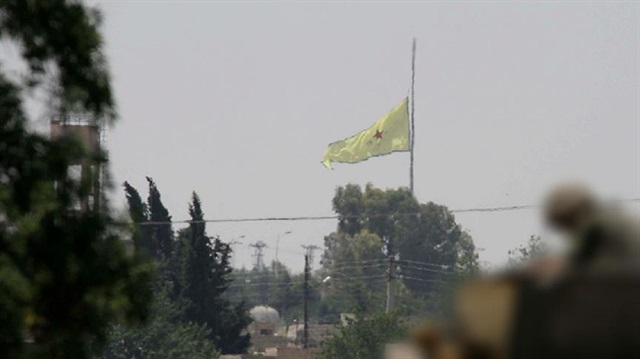

Foundation for Political, Economic and Social Research report shows overlapping structures of groups
A recent report has set out the ties between the PKK, which is an internationally-designated terror group, and the Syrian PYD -- the U.S.'s ground ally in fighting Daesh.
The 72-page report "PKK's Network in Northern Syria PYD-YPG" by the Ankara-based Foundation for Political, Economic and Social Research (SETA) shows how the PKK, which is listed as a terrorist organization by Turkey, the U.S. and EU, is linked to the PYD and its armed wing the YPG.
U.S. support for the PYD in the fight against Daesh is a bone of contention in Ankara, which considers it a terror group that is seeking to control the territory along Turkey's Syrian border.
Under former President Barack Obama, Washington described the YPG as a “reliable partner" in Syria. Whether this situation will change under Donald Trump's presidency is yet unknown.
“We have proved that the PYD is an affiliation of the PKK by analyzing the leadership staff, the organizational structure, ideology and the Arabic legislation that it first published on its website but then deleted," Can Acun, one of the report's authors, told Anadolu Agency.
He said the PYD was established on the orders of the PKK's imprisoned leader Abdullah Ocalan and shaped by senior members of the PKK.
The PYD has since been staffed with senior PKK figures, it adds, with the supply of PKK fighters to the YPG increasing after the start of the Syrian civil war.
Although Acun did not provide any further details, the report says it relies on media, government, academic and NGO reports and witness accounts. It has also utilized images from social media and information published by the PKK and PYD.
The report provides organizational lists showing the interlocking roles of senior PKK and PYD/YPG members, including biographical background and images.
- Assad cooperation
It cites the "Martyred Ayhan" PKK camp in northern Iraq that has served as a headquarters for both groups where PKK and YPG militants have trained.
The SETA researchers say the PYD wanted to take advantage of the conflict in Syria and cooperated with Bashar al-Assad's regime to carve out territory in northern Syria, where, with the support of Assad and the PKK, it declared "cantons".
The PYD became an “armed non-state actor" in the region, the report said.
The PYD asserted its authority over the Kurdish, Arab and Turkmen population in "cantons" under its control, often committing war crimes against the Arab and Turkmen population, SETA added.
The PYD tried to connect the regions it controlled in different parts in northern Syria day by day with the help of the U.S. forces.
By presenting itself as an “effective partner" on the ground, the PYD was able to seize territory with the support of U.S. air power as it aimed to dominate the land from the northeast corner of Syria to Afrin canton in western Syria.
“The PYD tries to connect its cantons, create a terrorist corridor and conducts a demographic engineering through military engagements with the Assad regime and the U.S.,"Acun said.
However, the launch of Turkey's Operation Euphrates Shield in August has defeated the PYD's plans, Acun added.
The operation, which has seen Free Syrian Army fighters backed by the Turkish military, take back large swathes of territory from Daesh, thwarting the PYD's scheme.
The PKK, listed as a terrorist organization by Turkey, the U.S., and EU -- resumed its armed campaign in July 2015 and since has been responsible for the deaths of approximately 1,100 security personnel and civilians, including women and children.
#Economic and Social Research (SETA)
#Can Acun
#Foundation for Political
#network
#PKK
#PYD
#report
#SETA
#Syria
#terrorist
#YPG

